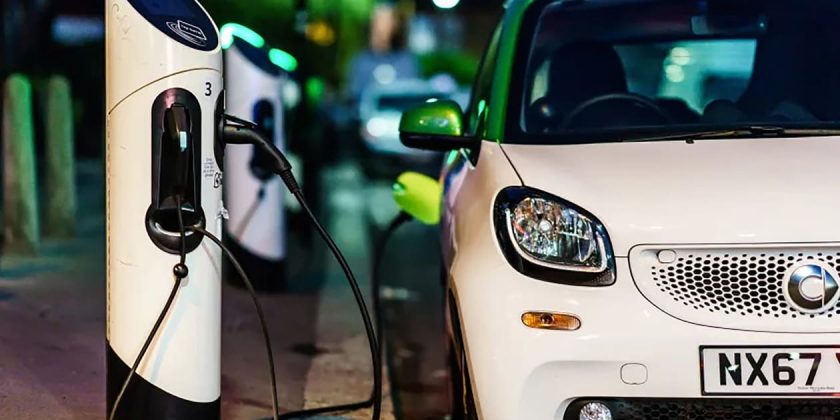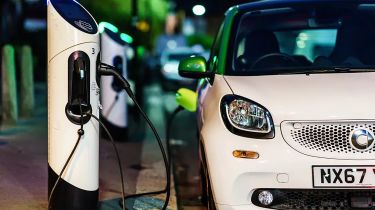There are now 32 electric cars to every public charge point, compared to 16 cars per charger in 2021
The Society for Motor Manufacturers and Traders (SMMT) has called for a “universal right to charge” as the ratio of public charge points to electric vehicles dropped by half in the past 12 months. There is now one charge point for every 32 plug-in vehicles, compared to one for every 16 cars in 2021.
Mike Hawes, chief executive of the SMMT, said there is now a greater focus on “charge anxiety” than range anxiety, as the UK’s electric car charging infrastructure struggles to keep up with strong EV sales.
Electric car chargers needed on every street, says Connected Kerb
Hawes asked the government for “more investment in standard public charging”, with a greater focus on “on-street charging” for those unable to top up their cars’ battery at home. He said that if the UK is to meet its targets for 2030 and beyond, drivers need “the right chargers, in the right places, ahead of time.”
While as many as one in 20 cars registered so far this year is electric – up from one in 1,700 in 2011 – the SMMT suggests there could be as many as 9.3 million EVs on UK roads by the end of the decade. A figure that will almost double to 18.4 million in 2035.
Hawes and his team want to see the disproportionate ratio of cars to chargers addressed via a nationally coordinated infrastructure campaign. They say binding targets are required for infrastructure roll-out, which would match the targets being imposed on the car industry to accelerate the EV switchover.
“Overseen by a regulator, such a plan would put consumers at the heart of the transition, accelerating chargepoint provision and addressing charging anxiety among drivers and businesses,” the SMMT said. “It would also help the one in three households that do not have off-street parking and would therefore be reliant on public charging, to make the switch.”
In a statement at the SMMT Electrified conference in London this week, which aims to bring together industry stakeholders and government to accelerate the transition to net zero, the organisation also highlighted that private motorists bought only a third of the new plug-in models sold in 2021, with the majority going to fleets and company car drivers.
Businesses see big tax benefits, while incentives for private drivers to switch to EVs are being withdrawn. As a result – and despite demand far outstripping supply – the SMMT says EV adoption in the UK is falling behind some European nations.
“The UK automotive industry has invested massively (£10.8bn in EV and battery production) during Britain’s first electric decade,” Hawes said. “As we enter the second, the stakes are higher, but mandates on manufacturers alone will not drive the market.”
Asked when infrastructure will no longer be a barrier to EV uptake, Katie Black, joint head from the Office for Zero Emissions Vehicles, Department for Transport (DfT), promised: “in two to three years [the UK] will be in a very different pace to where [it is] today.”
An announcement from the DfT on how it aims to tackle charge anxiety is due later this week. According to Black there will be a particular focus on “A to B” rapid charging, plus “provision for those without off-street parking”.
Click here for our list of the best electric cars on sale right now…
Source: Read Full Article



 Electric car chargers needed on every street, says Connected Kerb
Electric car chargers needed on every street, says Connected Kerb